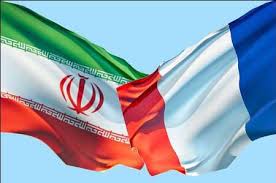
Does France support JCPOA?
Hanif Ghaffari
Basirat Political Center

The visit of the US president and Emmanuel Macron in New York can also be
analyzed in the same vein. The main topic of the talks between US and French
presidents was a nuclear deal with Iran.
French President Emanuel Macron met with President Donald Trump in New York in
the sidelines of United Nations General Assembly. The main topic of the
US-French presidents' talks was over the nuclear deal with Iran. In recent
weeks, the French authorities have also shown green light to the United States
in the context of a fresh deal on JCPOA. A spokesperson for the French president
recently announced that the Nuclear Deal could be "completed" by attaching the
issue of Iran's missile power.
The French authorities have claimed that they were about to complete a nuclear
deal after 2025. But the main question is why the French authorities have
already expressed such positions?
What is certain is that the French authorities have started a paradoxical and
dual game in this regard. On the one hand, they try to capture the satisfaction
of Trump and the White House, and on the other hand, they are committed to a
nuclear deal. This dichotomy shows itself in the language and behavior of French
officials.
Donald Trump, on the other hand, has left the Paris climate agreement after
attending the White House. Some analysts say Trump is looking to get concessions
from European countries, especially France, to return to this agreement. One of
those privileges could be to accompany Paris on a nuclear deal with Iran.
However, after the French presidential election and the election of Macron,
talks were held between Washington and Paris on the return of the US to the
Paris agreement. Even Macron has stated that he will do his best to bring
America back to Paris agreement.
However, after the United Nations General Assembly, France, like other European
countries, stressed that it was not possible to re-negotiate a nuclear deal, but
it should be noted that it was not possible to open a special account on this
Parisian position! The rules of the French deal with the nuclear deal are
subject to a variety of components, including the relationship with the United
States and two other European countries, Germany and Britain. In other words,
France does not look at the nuclear deal with a legal approach and as an
independent phenomenon. In this equation, France, like the United States and
even two other European countries, Britain and Germany, have a political and
instrumental view of a nuclear deal with Iran.
Finally, the young French president Emanuel Macron knows well that his approach
to the nuclear deal will be judged by the general public. He knows well that the
cost of leaving the nuclear deal is heavy. However, the foreign diplomacy and
foreign policy system of our country should not be convinced that the French are
a safe actor to protect the nuclear deal. The experience of the past two years
has shown that, despite the interaction and association with the three European
countries over a nuclear deal, it can not be argued that they support the
correct implementation of this agreement.















